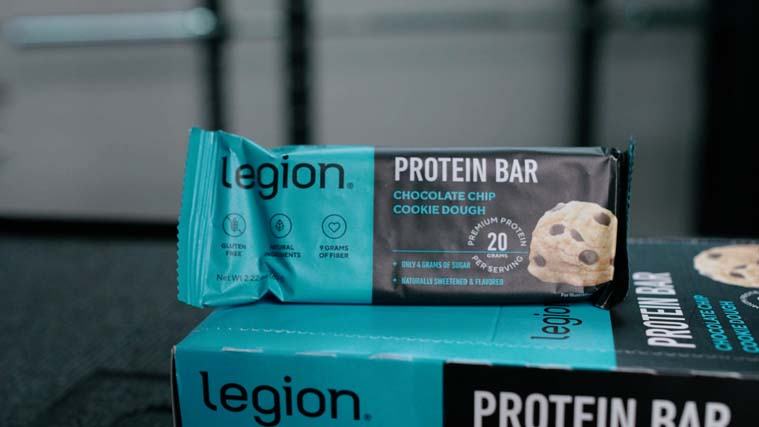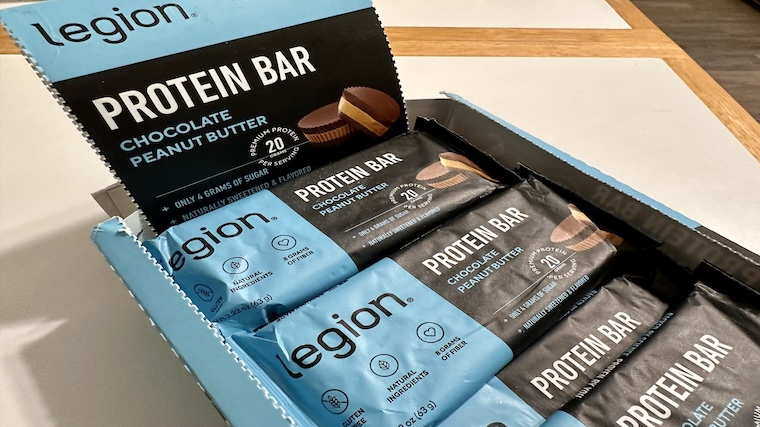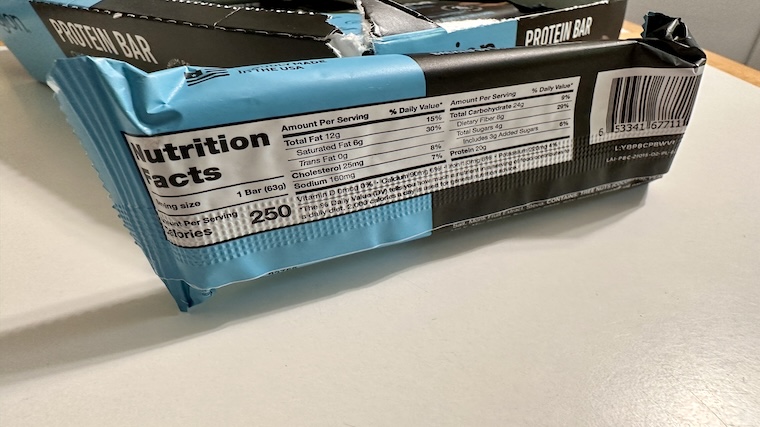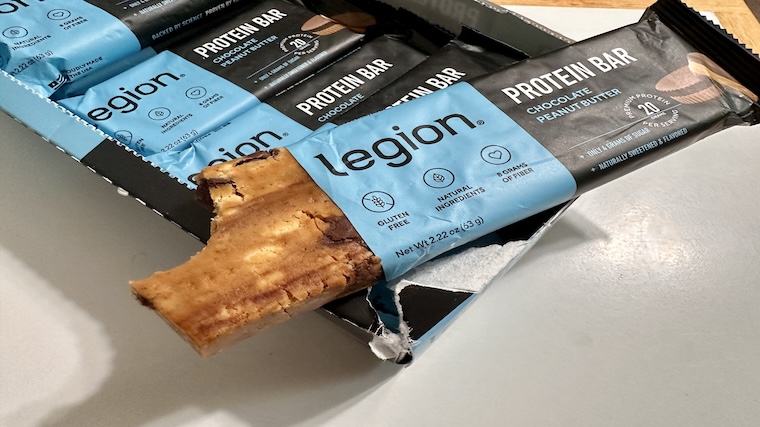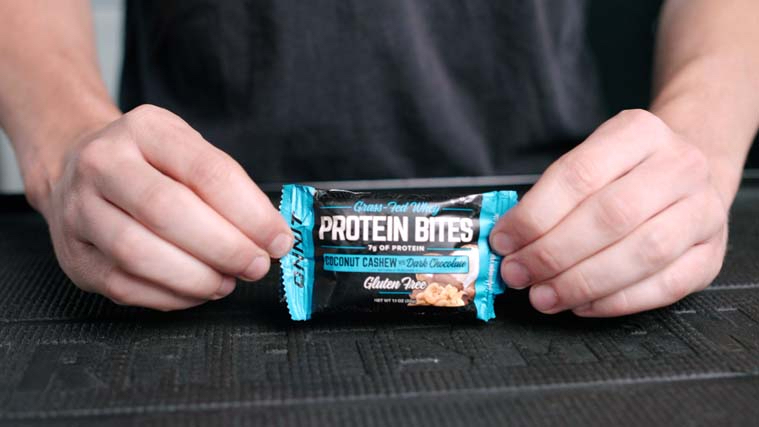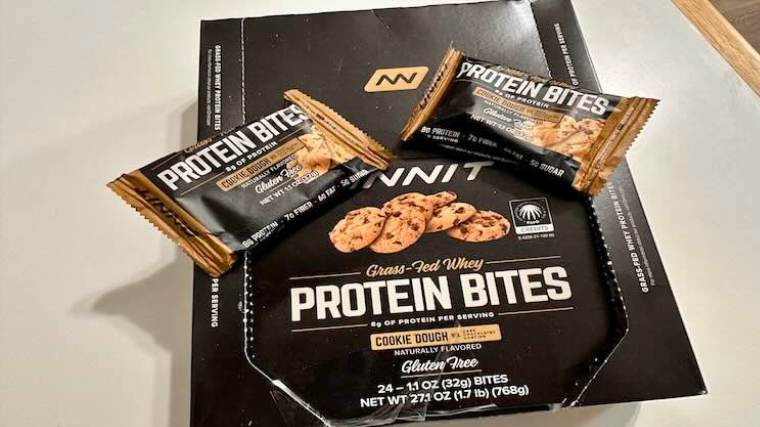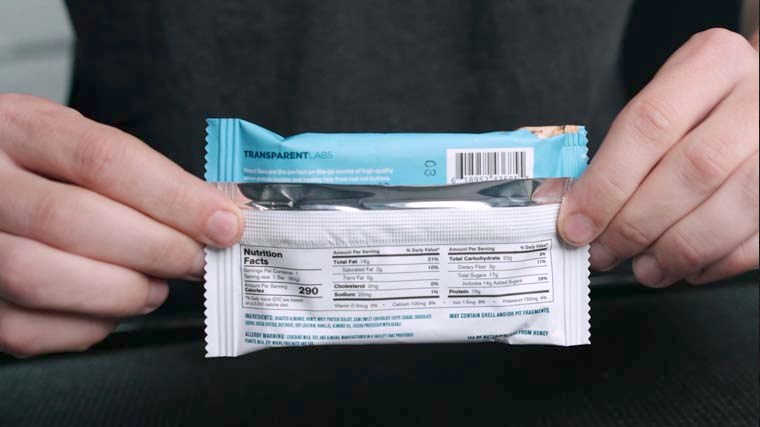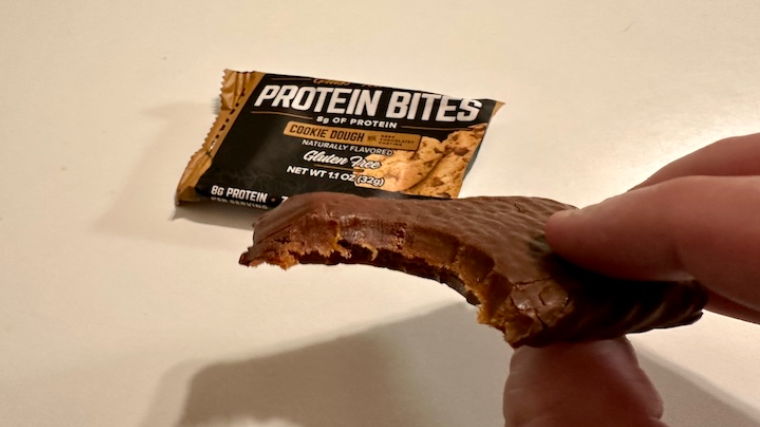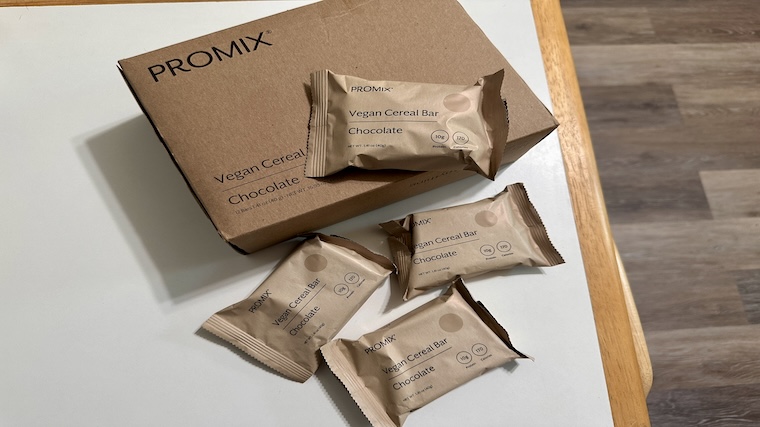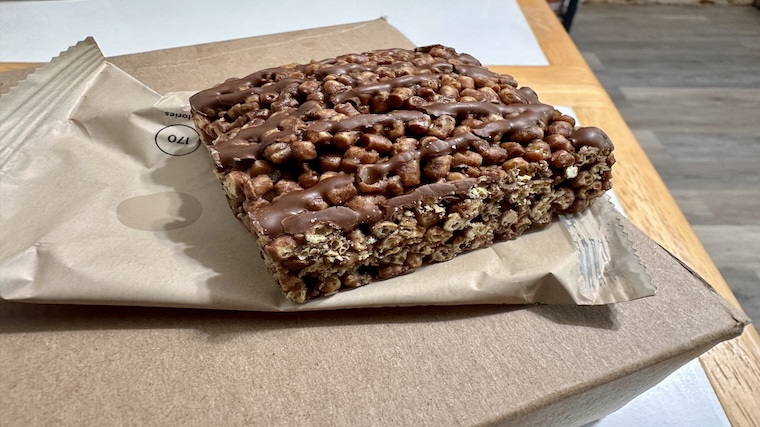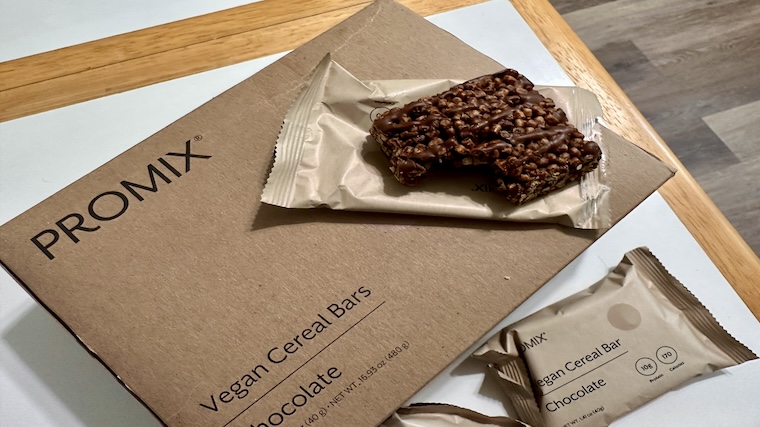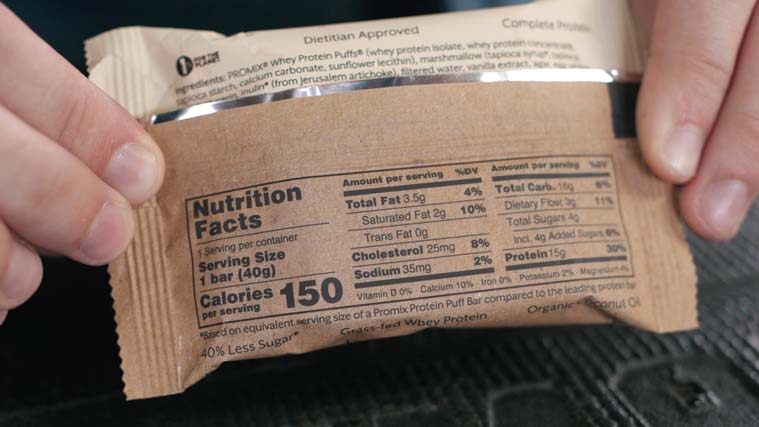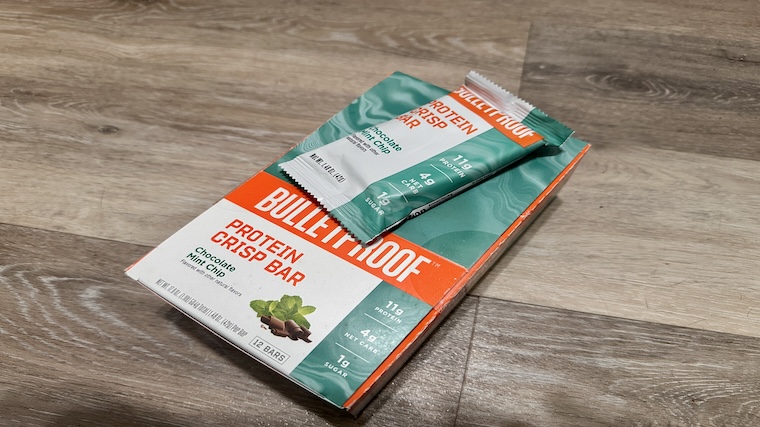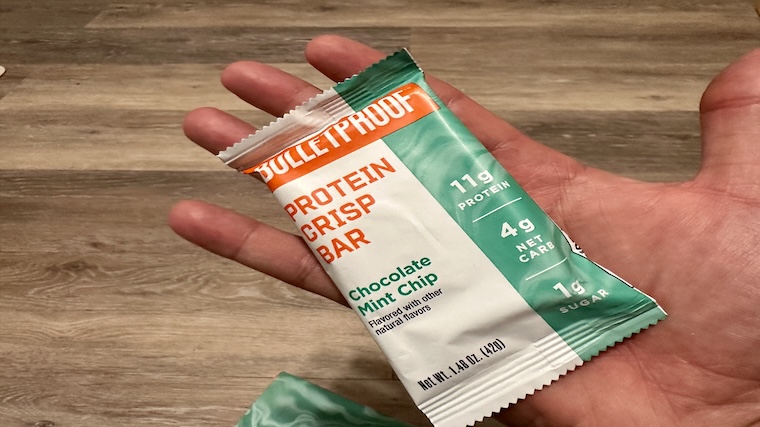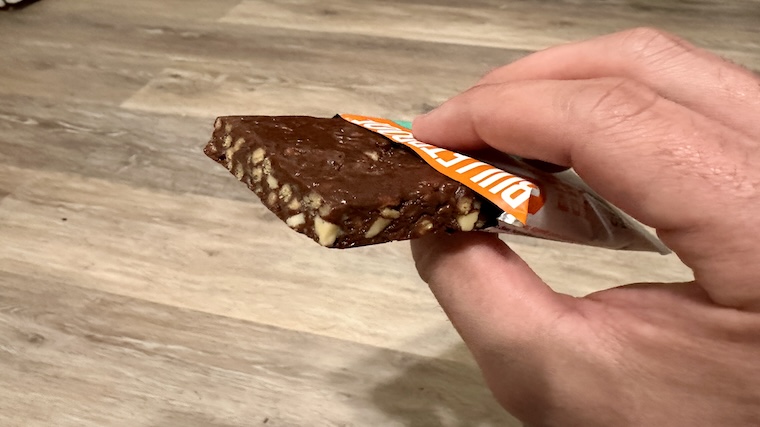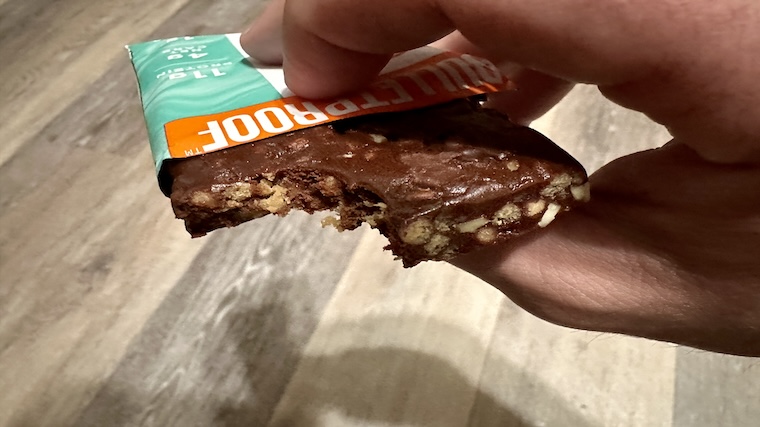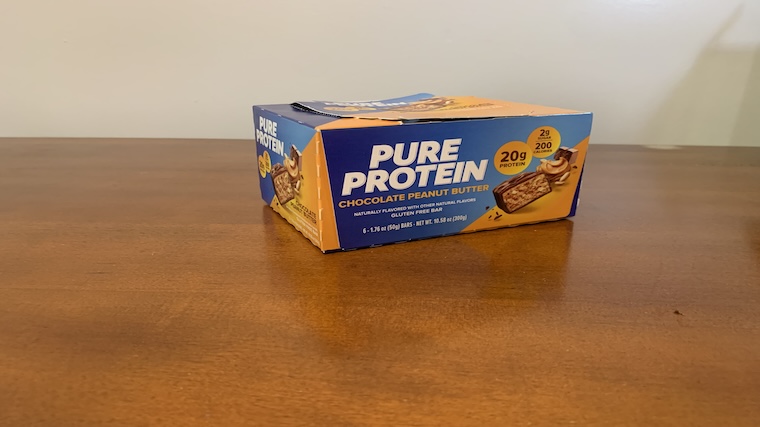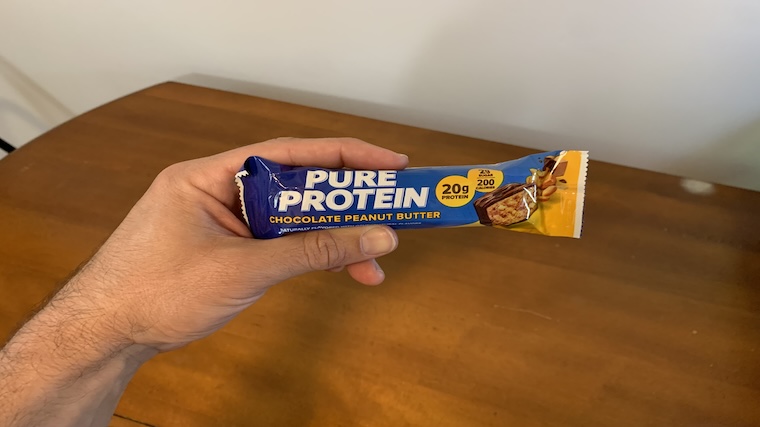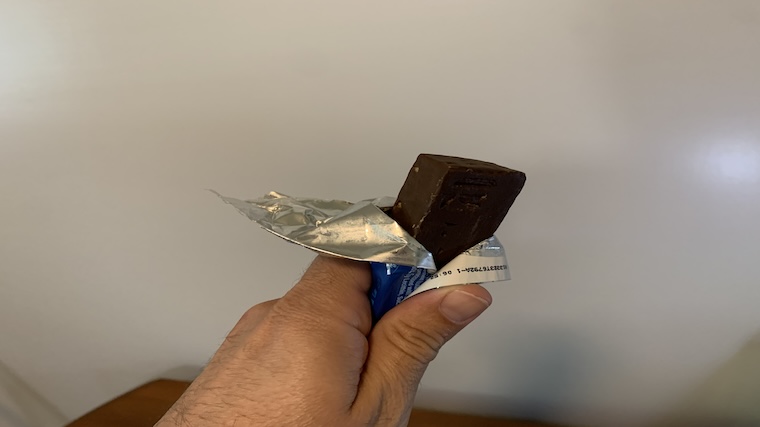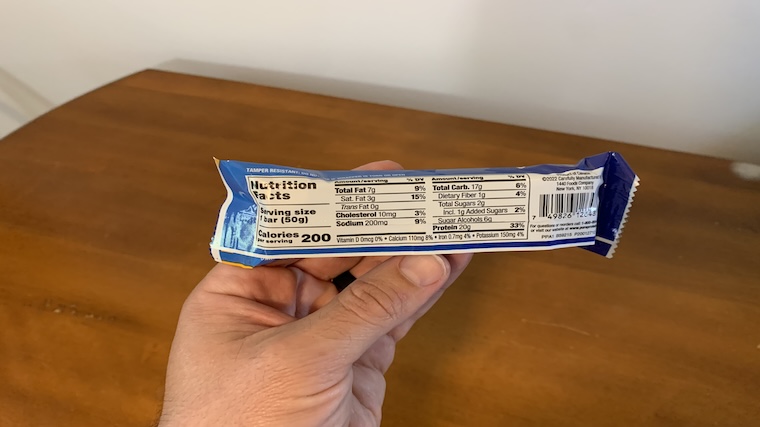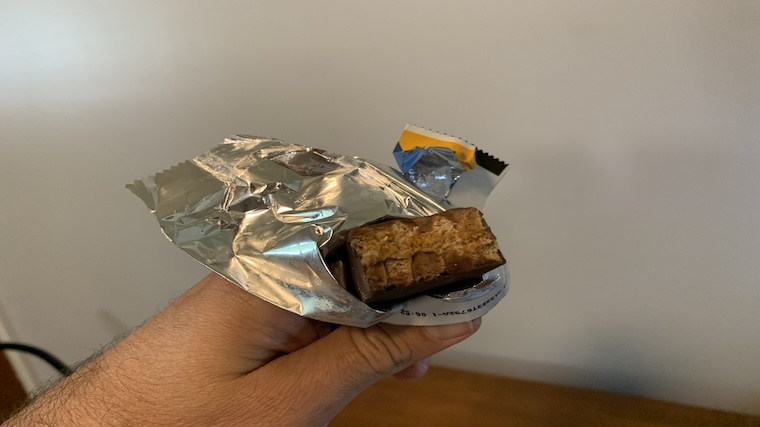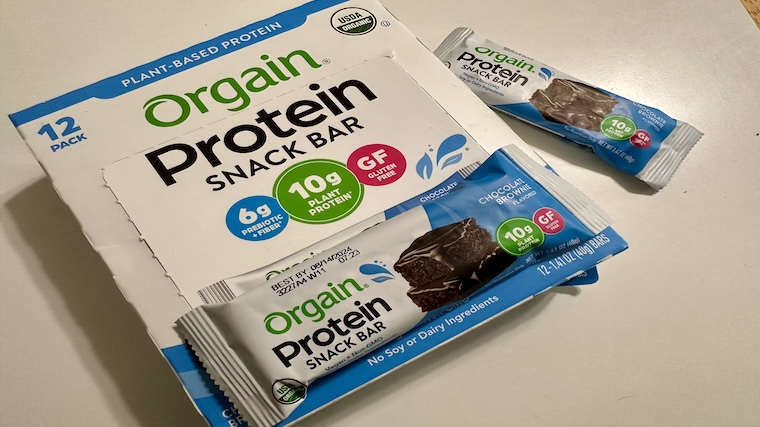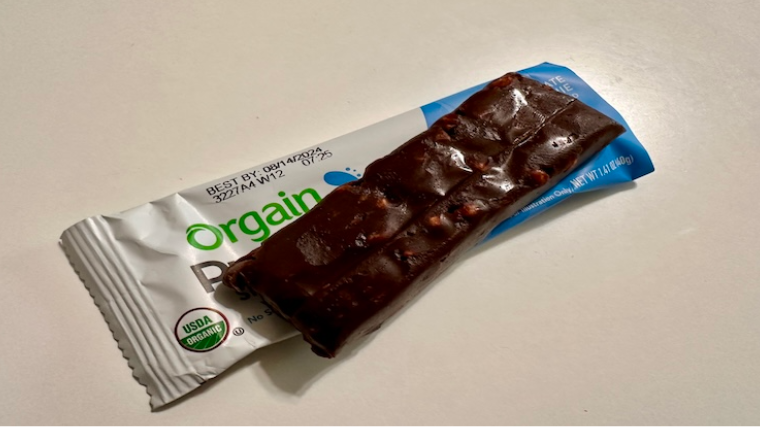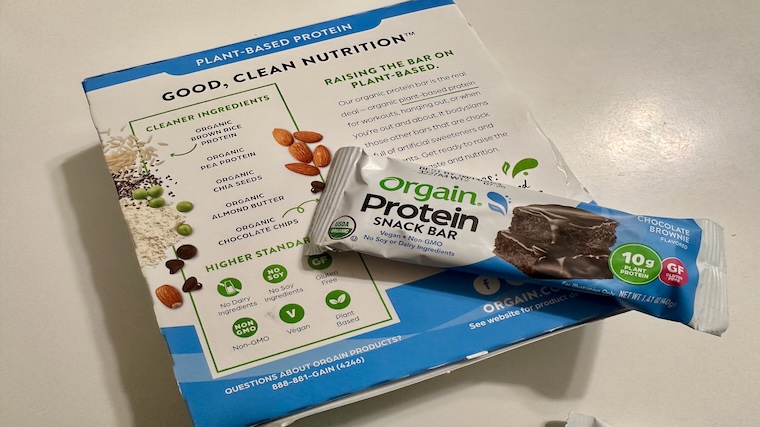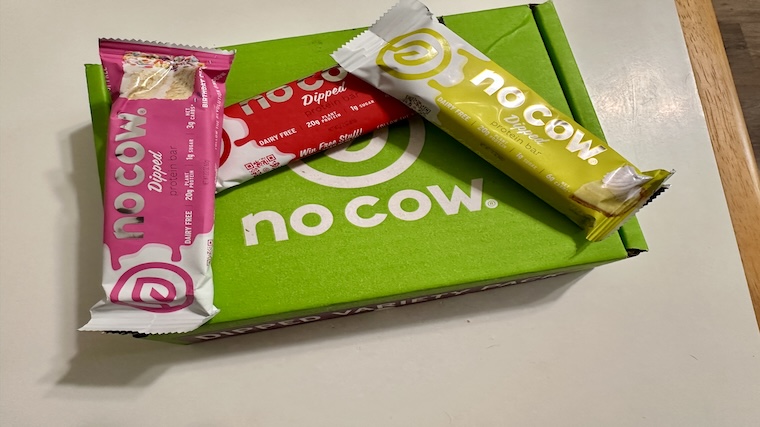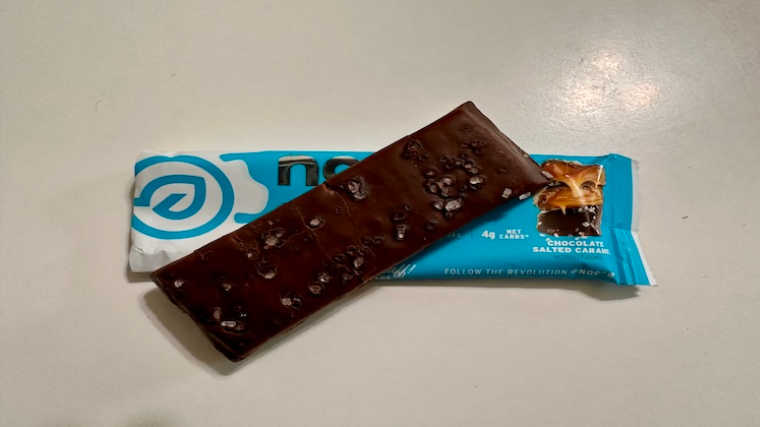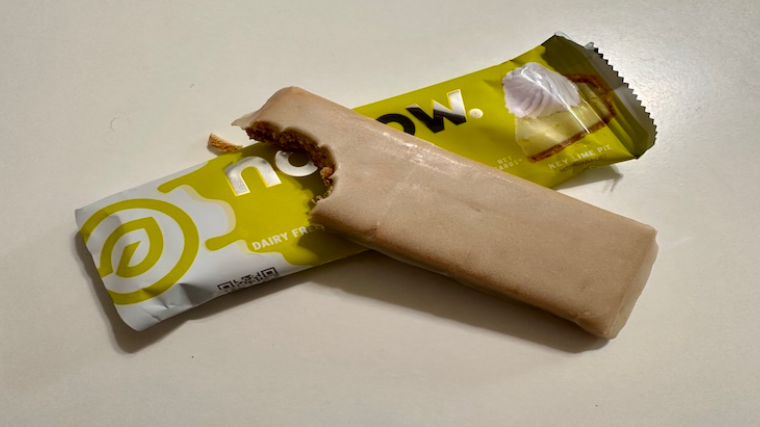Looking for a delicious way to incorporate more protein into your diet? Say goodbye to sugar crashes and hello to guilt-free snacking with the best protein bars with low sugar. Whether you’re hitting the gym, need a quick bite at work, or want a healthy dessert without derailing your diet, these bars pack a punch of protein without contributing too many added sugars.
Limiting sugar can be helpful since excessive intake over time can result in chronic health issues like diabetes and heart disease. (1) Getting adequate protein intake offers health benefits such as muscle gain, weight loss, and muscle recovery as part of your pre- and post-workout nutrition regimen. (2) We’ve curated a list of the best low-sugar protein bars after carefully reviewing their nutrition facts, ingredients, texture and taste, effectiveness and side effects, and value – and they’re all tested by our experts and reviewed by registered dietitians.
The 7 Best Low-Sugar Protein Bars of 2026
- Best Low Sugar Protein Bars Overall: Legion Protein Bars
- Best Tasting Low-Sugar Protein Bars: Onnit Protein Bites
- Best Gluten-Free Low-Sugar Protein Bars: Promix Protein Puff Bars
- Best Low-Sugar Protein Bars for Weight Loss: Bulletproof Protein Crisp Bars
- Best Budget Low-Sugar Protein Bars: Pure Protein Protein Bars
- Best Organic Low-Sugar Protein Bars: Orgain Organic Vegan Protein Bars
- Best Dairy-Free Low-Sugar Protein Bars: No Cow Dipped Bars
Editor’s note: The content on BarBend is meant to be informative in nature, but it should not be taken as medical advice. The opinions and articles on this site are not intended for use as diagnosis, prevention, and/or treatment of health problems. It’s always a good idea to talk to your doctor before beginning a new fitness, nutritional, and/or supplement routine. Individual needs for vitamins and minerals will vary.
How We Tested and Chose the Best Low-Sugar Protein Bars
The BarBend team is made up of competitive athletes, certified personal trainers, registered dietitian nutritionists, and lifelong fitness enthusiasts. To determine the best low-sugar protein bars available today, we’ve tested over 50 different profiles across some of the industry’s most trusted brands, using a multi-point methodology to rate each profile on a scale of 1 (lowest) to 5 (highest). Below are some of the categories and components that played into our rankings.
For further information on how we trial and test the products chosen for this guide and more, be sure to read the BarBend Supplement Testing Methodology page.
- Nutrition Facts: Since protein bars are classified as food, each has a Nutrition Facts table on the label. With the help of our registered dietitians, we’ve decoded the nutrition facts for each pick to understand the macronutrient and micronutrient profiles, added sugar content, and more.
- Ingredient List: We scrutinized the label’s ingredient list for each pick to ensure that we included products with simple ingredients and few additives and fillers that add no nutritional value to the product.
- Texture: We’ve included various protein bars with different mouthfeels, from soft and chewy granola bars to crunchy and chocolate candy bars.
- Effectiveness: The best protein bars can support your satiety and nutrition goals. Our testers tried these products to see how they stack up in terms of effectiveness, whether you want to use protein bars for weight loss, bulking, or on-the-go nutrition.
- Taste: Just because a product is low-sugar doesn’t mean it has to taste horrible — protein bars can be a great solution to satisfying your sweet tooth. While we know some yucky-tasting protein bars out there (and we know taste is very subjective!), we’ve included top picks with at least a 4 out of 5 star rating for taste and even our vote for the best-tasting low-sugar protein bar.
- Side Effects: Some brands choose to include artificial sweeteners and sugar alcohols to sweeten their products in the absence of sugar. However, sugar alcohols such as erythritol can cause undesirable gastrointestinal (GI) side effects. (3) While we love seeing low sugar content, we’ve evaluated these picks for side effects from ingredients like sugar alcohol.
- Value: We tried to include a range of products in our review, including the best budget low-sugar protein bar and more premium options better suited for specialized diets and nutrition needs. The prices can vary from $1.11 to $3.33 per bar, depending on your needs. However, given the added convenience factor, protein bars will cost slightly more than the best protein powders.
Best Low Sugar Protein Bars Overall: Legion Protein Bars
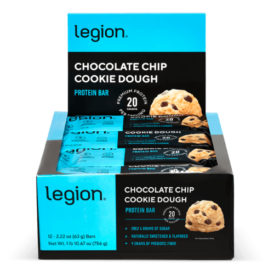
Legion High-Protein Bar has 20g of protein, 24g of carbs, and 12 grams of fat per bar. It slots in at 240 calories, and there’s only 4g of sugar per bar, which is pretty low considering some bars have up to 20g. Plus, the protein comes from a combination of whey protein isolate and whey protein concentrate, which makes for a balanced, stable blend.
Specs
- Price Per Bar: $3.00 to $3.33
- Protein Source: Whey Protein Concentrate, Milk Protein Isolate, Whey Protein Isolate
- Protein Per Serving: 20 grams
- Calories Per Serving: 250 calories
- Available Flavors: Peanut Butter Jelly, Chocolate Peanut Butter, Chocolate Chip Cookie Dough, Blueberry Muffin
Looking for a high protein, low sugar option with high-quality protein sources, natural ingredients, and fiber? Look no further than Legion Protein Bars – we think these are the best protein bars overall. With 24 grams of carbs (of which 3 grams are from added sugar), 12 grams of fat, and 20 grams of protein, the macronutrients in this product are well-balanced for only adding up to 250 calories. Our expert reviewer Chelsea Rae Bourgeois, M.S., R.D.N., L.D., who is a Registered Dietitian, states, “I love that this protein bar doesn’t contain any proprietary blends, and it’s third-party tested. It also contains an impressive amount of protein and fiber, with 20 g and 8-9 g per bar, respectively.” Plus, the protein sources are whey protein isolate and milk protein isolate, which are more readily digestible in the body due to their processing. (4)
It also contains all-natural ingredients and prebiotic fiber. The fiber content is helpful in a protein bar since it supports satiety and feeling fuller for longer, along with the bigger 65- to 68-gram serving size. (5) For context, the USDA recommends 31 to 34 grams of fiber per day for men and 22 to 28 grams per day for women. (6) Our team tested this product for satiety and passed with flying colors.
Our product tester states, “Great on-the-go breakfast solution or satiating snack in-between meals.” However, this pick lost some marks for its presence of erythritol and higher-than-desirable fat content. “It also contains erythritol, a sugar alcohol that may cause GI upset in some people. Plus, each bar contains 12 g of fat, which accounts for 43% of the bar’s total calories–something to consider if protein is the priority,” Bourgeois adds. While the higher fat content may work for general nutrition needs and keto diets, it may not work for diets or macros that call for lower fat needs. Overall, we gave Legion Protein Bars 4 out of 5 for their formulation.
We also think the texture could use a little work – our team rated the texture a 3.5 out of 5.“This Legion bar is dense, meaning you’ll need to really chomp down on it to break off a bite. However, I appreciated the varying textures from the dough, chocolate chunks, and puffed crisps,” our tester adds. Pro Tip: Enjoy at room temperature (rather than storing in the fridge or your gym bag in a cold garage!), or remove the wrapper and microwave for 20 seconds for a gooey, soft texture instead of the dense, thick texture.
Given the macros (high in protein, low in sugar), ingredients, protein sources, and effectiveness, Legion Protein Bar earns our vote for our list’s best overall low-sugar protein bar.
Best Tasting Low-Sugar Protein Bars: Onnit Protein Bites
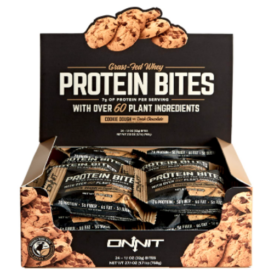
Onnit’s protein bites combine the decadence of a dark chocolate coating with a great tasting center, available in three delicious flavors — Chocolate Cookie Dough, Chocolate Coconut Cashew, and Chocolate Peanut Butter. These bites contain up to 9g of grass-fed whey isolate, and 7g of dietary fiber.
Specs
- Price Per Bar: $1.41 to $1.66
- Protein Source: Whey Protein Isolate, Milk Protein Isolate
- Protein Per Serving: 7 to 9 grams
- Calories Per Serving: 120 to 140 calories
- Available Flavors: Cookies and Cream, S’mores, Chocolate Coconut Cashew, Chocolate Cookie Dough, Chocolate Peanut Butter
If you’re looking for some of the best-tasting protein bars with low sugar to incorporate into your regimen, it’s tough to look past Onnit Protein Bites. After carefully testing many products, our team rated this pick a 5 out of 5 for taste. Kate Meier, BarBend editorial member and NASM-Certified Personal Trainer, tried several flavors and loved them all. She states, “These are really like candy bars! In my opinion, the Cookies and Cream variety is best — it’s reminiscent of an Oreo with an added zest of protein.” And consumers agree – over 300 positive reviews on the Onnit website speak for themselves.
From a nutritional standpoint, this product packs a punch. It consists of milk and whey isolate as protein sources, which are more readily digestible. (4) As a registered dietitian, I like seeing plant-based ingredients, especially given research that suggests the benefits of plant-based diets when comparing vegan or omnivore diets on cholesterol levels. (7) Moreover, it incorporates over 60 plant-based ingredients and up to 7 grams of prebiotic fiber from those ingredients. Fiber is helpful for athletes looking to lose weight since it can help them stay fuller for longer. (5)
However, I wish this product used fewer fillers. The dark chocolate coating contains ingredients like palm oil and lecithin that don’t add any nutritional value. It also only contains up to 9 grams of protein, and I usually like to see at least 20 grams of protein if you’re replacing a meal with a protein bar. Meier agrees and states, “I’d view these as a good post-workout snack or ‘healthy dessert’ given that the protein per bar is lower than other bars we’ve trialed.”
Lastly, the serving size is relatively small at 32 grams compared to other protein bars, which are often 50 grams or bigger. This may not be a dealbreaker if taste is your priority, but recognize that you might need more than one serving to meet your protein needs if you rely on this pick as your supplemental protein source. Overall, if you’re looking for a tasty snack with protein and low sugar, try Onnit Protein Bites for bite-sized gains.
Best Gluten-Free Low-Sugar Protein Bars: Promix Protein Puff Bars
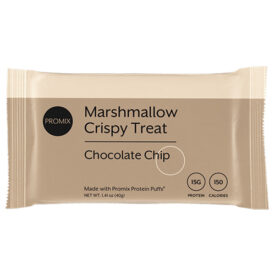
These crunchy bars are reminiscent of a rice crispy treat that's packed with protein and absent all that unwanted sugar. They're a nice change from normal chewy protein bars.
Specs
- Price Per Bar: $2.18 to $2.66
- Protein Source: Whey Protein Isolate, Whey Protein Concentrate
- Protein Per Serving: 15 grams
- Calories Per Serving: 150 to 160 calories
- Available Flavors: Vanilla, Snickerdoodle, Chocolate Chip, Mint Chocolate, Blueberries & Cream, Strawberries & Cream, Coconut, Birthday Cake
Promix Protein Puff Bars boast all the clean credentials as one of the best protein puffs with low sugar content. These bars are gluten-free, non-GMO, soy-free, and corn-free, containing no stevia, gums, or artificial colors. When you’re on a gluten-free diet for celiac disease or gluten sensitivity, it’s hard to find compliant products since many products out there are cross-contaminated. (8) Thankfully, Promix Protein Puff Bars are completely gluten-free – they’re tested via third-party independent labs for gluten, along with heavy metals and allergens.
As a registered dietitian, I like that this product contains whole food ingredients and even 5 grams of dietary fiber to help you stay fuller for longer. (5) For context, the USDA recommends consuming about 31 to 34 grams of fiber per day for men and 22 to 28 grams per day for women. (6) As a low-sugar protein bar, it only contains 3 to 5 grams of added sugar compared to the USDA recommendation for limiting added sugar to less than 10 percent of your daily calories.
However, I deducted some points for its low protein and overall macro content. With roughly 160 calories per bar, more is needed for athletes to replace a full meal. Our product tester agrees and states, “I had no adverse effects with this Protein Puff Bar, and I felt satiated enough between meals. For a quick snack, it’s a true delight.” It’s a good snack option for your gym bag when you’re on the go and need a light pick-me-up. Overall, I’d give this bar a 4.5 out of 5 for its formulation.
In addition to its clean credentials, this low-sugar protein bar scored highly for taste and texture, with scores of 5 out of 5 and 4.5 out of 5, respectively. Our tester states, “Honestly, this is like the adult version of a chocolate Rice Krispies treat. The texture is pleasant and a nice break from your other chewy or dense protein bars.” While these bars are expensive, the gluten-free suitability, extensive third-party testing, and high marks for taste and texture might make them worth the price.
Best Low-Sugar Protein Bars for Weight Loss: Bulletproof Protein Crisp Bars
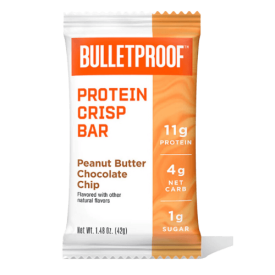
Bulletproof's Protein Crisp Bars are extremely calorie-friendly, making them an easy addition into any weight-loss or fat-loss diet. We also love the clean, whole food ingredients.
Specs
- Price Per Bar: $2.40 to $3.00
- Protein Source: Pea Protein, Peanut Butter
- Protein Per Serving: 11 grams
- Calories Per Serving: 160 calories
- Available Flavors: Peanut Butter Chocolate Chip, Coconut Chocolate Chip, Salted Caramel, Chocolate Mint Chip
In search of the best protein bars for weight loss, we’ve discovered Bulletproof Protein Crisp Bars, which are ideal for weight loss while low in sugar. As a registered dietitian, I love that this product harnesses the power of heart-healthy nuts. (9) Studies suggest that regularly eating nuts can help support your metabolic health, which may support your weight loss goals. (10) There are also only 4 grams of net carbs and 0 grams of added sugar in this pick, which is helpful for those trying to lose weight or following a keto diet. Plus, the inulin and prebiotic tapioca fiber contribute a whopping 9 grams of soluble fiber to help you stay longer, which is helpful for weight loss, too. (5)
I wish the protein content were higher to support weight loss, though. I typically like to see at least 20 grams of protein per serving for a protein supplement, whereas this product only has 11 grams. It would work better as a snack between meals rather than a meal replacement. I was also surprised to see the inclusion of some low-grade fillers like gums and glycerin on the ingredient list, which don’t contribute any nutritional value. I’d rate this pick a 4.5 out of 5 for its formula, given the focus on fats and fiber with no added sugar.
Despite its potential to support weight loss goals, this product has a chewy and crunchy peanut butter and chocolate taste and texture that will satisfy your sweet tooth without being overdone. Kate Meier, BarBend editorial member and NASM-Certified Personal Trainer, rated the taste a 4 out of 5. She states, “The peanut butter and chocolate flavors aren’t too overwhelming, which I enjoyed since it didn’t feel like you were munching on a candy bar filled with fats and sugar.” And while we love crunchy protein bars like RXBar, Bulletproof Protein Crisp Bars are more soft and chewy. “There’s a little bit of crunch, but I’d mostly categorize this snack under the ‘chewy’ category in terms of texture,” Meier adds.
Best Budget Low-Sugar Protein Bars: Pure Protein Protein Bars
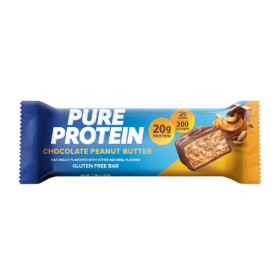
Pure Protein Bars are a budget-friendly protein bar that pack 21 grams of protein per serving, making them a perfect protein shake alternative. They're also available on Amazon Prime!
Specs
- Price Per Bar: $1.11 to $1.42
- Protein Source: Milk Protein Isolate, Whey Protein Isolate, Whey Protein Concentrate
- Protein Per Serving: 19 to 20 grams
- Calories Per Serving: 180 to 200 calories
- Available Flavors: Birthday Cake, Caramel Churro, Chewy Chocolate Chip, Chocolate Deluxe, Chocolate Mint Cookie, Chocolate Peanut Butter, Chocolate Peanut Caramel, Chocolate Salted Caramel, Cookies and Cream, Galactic Brownie, Lemon Cake, Strawberry Greek Yogurt
The average American spends $124.40 per month on fitness, according to a survey of 1,001 Americans by LendingTree. (11) That leaves many people with a tight budget remaining to splurge on the best low-carb protein bars. Protein bars tend to be more expensive than protein powders, but if you value convenience but want to take a protein bar that’s a good value for your money, check out Pure Protein.
Pure Protein Protein bars are economical compared to other picks based on our research, with prices starting at $1.11 per serving when bought in bulk. For the cheap price, this product still contains high-quality milk and whey isolate sources, which are more digestible than standard whey. (4)
As a registered dietitian, I love that this product offers a solid protein-to-calorie ratio with up to 20 grams of protein for 200 calories per serving. The formula is a 4 out of 5 with some deductions for artificial sweeteners (sucralose), artificial flavors, and many filler ingredients. Still, you’re getting a lot of protein at a decent price. Moreover, with only 2 grams of added sugar for most flavors, these energy bars make it easy to stay on track if you limit your sugar and carb intake.
Pure Protein ranks highly on taste and texture despite the low price per serving. Our tester, Kate Meier, BarBend editorial member and NASM-Certified Personal Trainer, rated this product’s taste a 4 out of 5. Meier states, “Out of many protein bars I’ve tried, this is the most like a candy bar. It’s a little chalky, but the chewy texture and mouthfeel make up for it.”
Many also equate its texture to a candy bar, and it’s easy to see why – this product comes in various decadent chocolate flavors. “I’d compare its texture to a Milky Way, Three Musketeers, or Snickers. It’s smooth and rich, yet easy to bite through,” Meier adds. Of course, if you’re unsure whether this product is right for you, you can try the Variety Pack on Amazon before committing to one flavor.
Overall, while not a standout product, Pure Protein is an excellent value for your money with decent protein sources, which makes this low-sugar protein bar worth keeping in your pantry.
Read our full Pure Protein Protein Bar Review.
Best Organic Low-Sugar Protein Bars: Orgain Organic Vegan Protein Bars
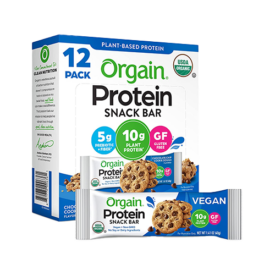
Orgain Protein Snack Bars are a great on-the-go snack that provides a hit of protein. They’re also helpful as a quick post-workout snack. Each bar has 10g of vegan protein sourced from rice and peas as well as low sugar with no artificial flavors or preservatives.
Specs
- Price Per Bar: $1.31 to $1.38
- Protein Source: Organic Brown Rice Protein, Organic Pea Protein, Organic Rice Flour, Organic Ground Chia Seeds, Organic Almond Butter
- Protein Per Serving: 10 grams
- Calories Per Serving: 150 calories
- Available Flavors: Chocolate Brownie, Chocolate Chip Cookie Dough
Imagine a vegan and organic chocolate chip cookie with sea salt and plant protein. That’s what you’re getting in each Orgain Organic Vegan Protein Bar. This high-protein snack can help satisfy your sweet cravings while maintaining a vegan lifestyle and choosing organic ingredients not treated with pesticides. It’s certified USDA organic and made with non-GMO ingredients, meaning it’s been produced according to the USDA’s organic standards.
While organic doesn’t always mean healthy, it’s an easy way to identify foods typically free from highly processed and artificial ingredients that don’t add nutritional value. As a registered dietitian, I’d score this formula a 3.75 out of 5. It contains various plant-based protein sources to cater to specific dietary needs and provide different essential amino acids on a vegan diet that might otherwise be lacking. I also like that it contains 5 grams of fiber from prebiotics and only 6 grams of sugar. For context, the USDA recommends consuming 31 to 34 grams of fiber per day for men and 22 to 28 grams for women, as well as limiting added sugar intake to less than 10 percent of your total calories. (6)
However, I deducted points for the presence of erythritol, a sugar alcohol, since sugar alcohols can cause gastrointestinal upset (and leave a slight aftertaste). It also contains low-grade fillers like lecithin, which is an emulsifier. Moreover, Orgain Organic Vegan Protein Bars are also lower in protein than I’d like to see. As a registered dietitian, I typically look for at least 20 grams of protein in a supplement. While it may serve as a healthy snack, I wouldn’t use this product as a meal replacement since it’s low in protein and light on calories, with 150 calories per bar.
This pick received a rare 5 out of 5 stars on taste for a vegan-friendly protein bar. Plant-based protein products are often earthy, so we were happy with the Chocolate Chip Cookie Dough flavor that our team tried. Our tester, who is a certified personal trainer, states, “I was pleased with the flavor. You get a little aftertaste from some of the included ingredients, but I felt fine after eating one of these bars – unlike some of the other vegan snack bars I’ve tried in the past.” So, if you’re looking for a tasty chocolate sea salt delight while living an organic and vegan lifestyle, try Orgain Organic Vegan Protein Bars as your next snack alongside some of the best vegan protein powders.
Best Dairy-Free Low-Sugar Protein Bars: No Cow Dipped Bars
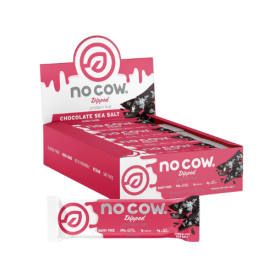
The No Cow Protein Bars come available in various flavors, and have 20 grams of plant protein.
Specs
- Price Per Bar: $2.24 to $2.75
- Protein Source: Brown Rice Protein, Pea Protein
- Protein Per Serving: 20 grams
- Calories Per Serving: 200 calories
- Available Flavors: Birthday Cake, Chocolate Mint Cookie, Chocolate Peanut Butter, Chocolate Salted Caramel, Cinnamon Roll, Frosted Gingerbread Cookie, Key Lime Pie, Strawberry Shortcake
A low-sugar, dairy-free protein bar? No “whey”! No Cow Dipped Bars contain no protein sources derived from cow’s milk. Instead, it’s made with peas and brown rice. Given the prevalence of lactose intolerance and the many touted vegan protein benefits, it’s no surprise that dairy-free and lactose-free protein supplements are in high demand. (12) In addition to being dairy-free, No Cow Dipped Bars are also gluten-free, non-GMO, vegan, soy-free, and keto-friendly, making them ideal for special dietary needs.
As a registered dietitian, I love that this protein bar delivers a whopping 20 grams of protein for only 200 calories and 0 grams of added sugar. Some people (especially those who choose keto protein bars) also choose to count net carbs, which is the total carbs per bar minus the fiber and half of the carbs from sugar alcohols – and this product contains only 4 grams of net carbs. (13) Depending on the flavor, it also contains up to 15 grams of soluble fiber, which can help you stay fuller for longer. (5)
However, I was disappointed to see the inclusion of erythritol, which is a sugar alcohol, and fillers, despite being marketed as a product that’s free from undesirable ingredients. Erythritol can leave a bit of a “cooling” aftertaste on your tongue, and sugar alcohols, in general, can cause some gastrointestinal issues. (3)
Our tester, Kate Meier, BarBend editorial member and NASM-Certified Personal Trainer, had a good experience testing the product and states, “I didn’t experience any unwanted side effects with this bar, although I wasn’t shocked at this finding given that No Cow is intended to be free of ingredients that could potentially lead to GI distress.” Overall, I’d rate it a 4 out of 5, with deductions for the extra unnecessary ingredients.
However, Meier wasn’t too impressed with this product’s texture or taste. She states, “There’s a nougat-like texture with these bars, which can make for easy chewing. However, I did experience some dryness and gritty feeling on my teeth that may not appeal to some — you feel like grit quickly builds up over your teeth.” Pro Tip: We recommend pairing this snack bar with a beverage of your choice so it’s not so dry.
As far as taste goes, Meier states, “While this bar may be a good fit for specialized diets, the taste could be off-putting for those who are accustomed to whey or other protein sources.” So, while it doesn’t rate highly on some practical considerations, No Cow is worth trying for those on special diets who prefer bars with high protein and low sugar.
Benefits of Low-Sugar Protein Bars
Low-sugar protein bars provide concentrated doses of protein essential for muscle recovery and growth while minimizing sugar crashes. (2) Plus, they’re just as nutritious, easier to take, and tastier than conventional whey protein powders. Read on to learn more about the full benefits of adding low-sugar protein bars to your training regimen.
- Helps manage blood sugar: Consuming foods like low-sugar protein bars that are lower in added sugars can help prevent spikes in blood sugar levels or sugar crashes. This can help you maintain your energy levels throughout the day and may help prevent insulin resistance. (13)
- Convenience: Compared to protein powders, low-sugar protein bars are a much more convenient way to meet your protein needs on the go or between meals. Pack in your gym bag and enjoy.
- May support weight loss: When you limit your sugar intake by consuming low-sugar protein bars, you’re also limiting your carb intake – and studies show that low-carb diets may support weight loss compared to non-carb-restricted diets. (14) If you want to drop some pounds, these low-sugar protein bars may help you.
- Meet your dietary needs: Low-sugar protein bars are often formulated with specific nutritional needs in mind, such as keto, diabetic, or gluten-free. Choosing the best low-sugar protein bars can help you stay on track without compromising your diet.
- Increase your protein intake: While sedentary individuals don’t need as much protein, how much protein you need per day can be different for athletes, who often need up to 1.6 grams per kilogram of body weight daily to support fitness and body composition goals. (15) That can be a lot of food to try to reach your protein goal. Whatever your protein needs might be, low-sugar protein bars can seamlessly help you up your protein intake.
How Much Do Low-Sugar Protein Bars Cost?
Low-sugar protein bars typically cost from $1.11 to $3.33 per bar, depending on the brand, ingredients, credentials, and where they are purchased. Buying in bulk or signing up for auto-ship can make the cost per bar cheaper. Be sure to check the serving size of the protein bar, as it can vary vastly — some are snack-sized bites, while others are big enough to be meal replacements.
| Best Low Sugar Protein Bars Overall | Legion Protein Bars | $3.00 to $3.33 |
| Best Tasting Low-Sugar Protein Bars | Onnit Protein Bites | $1.41 to $1.66 |
| Best Gluten-Free Low-Sugar Protein Bars | Promix Protein Puff Bars | $2.18 to $2.66 |
| Best Low-Sugar Protein Bars for Weight Loss | Bulletproof Protein Crisp Bars | $2.40 to $3.00 |
| Best Budget Low-Sugar Protein Bars | Pure Protein Protein Bars | $1.11 to $1.42 |
| Best Organic Low-Sugar Protein Bars | Orgain Organic Vegan Protein Bars | $1.31 to $1.38 |
| Best Dairy-Free Low-Sugar Protein Bars | No Cow Dipped Bars | $2.24 to $2.75 |
What to Consider Before Buying Low-Sugar Protein Bars
When buying a low-sugar protein bar, several factors must be considered to ensure you’re selecting a bar that fits your nutritional needs and preferences. Here are key considerations to consider when navigating the aisle at a supermarket like Walmart or browsing online on Amazon.
Amount of Added Sugar
If you’re on a low-carb or low-sugar diet, check the bar’s added sugar content before buying. As a registered dietitian, I recommend choosing bars with less than 5 grams of sugar. For context, the USDA recommends limiting intake of added sugars to less than 10 percent of your daily calorie intake. (6)
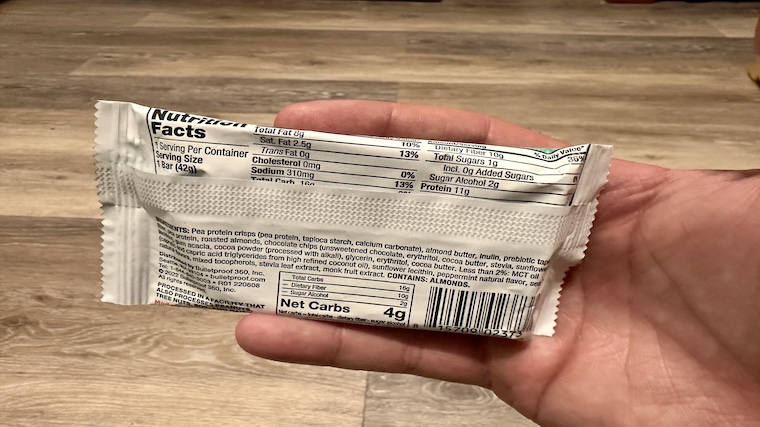
Besides the nutrition facts table, sugar may not always be listed as sugar on the ingredients list as “sugar” and may present itself as glucose syrup or high fructose corn syrup — these are all forms of sugar. Also, be wary of products with high levels of sugar alcohols, as they can cause digestive side effects in some individuals. (3)
Protein Source
Check the ingredient list to identify the protein source. While standard whey is effective for athletic performance, such as muscle gain or recovery, you may want a more digestible version like whey isolate or milk isolate if you wish to have less lactose and more protein. Or, if you follow a plant-based diet, you could opt for pea protein or a blend of plant-based sources while following our vegan diet athlete’s guide.
Protein Amount
Next, check the nutrition facts table to ensure the bar contains sufficient protein, depending on your dietary needs. As a registered dietitian, I typically recommend bars that contain at least 15 to 20 grams of protein, with lower amounts acceptable if you’re taking a bar as a snack and not a meal replacement.
Texture and Taste
These factors are tricky to assess before trying the product and are highly subjective depending on your preferences. We recommend skimming through reviews on Amazon or the manufacturer’s website or trying a single bar before buying in a larger pack to ensure you like it. Some brands also offer variety packs so that you can find the flavor that you want.
Dietary Needs and Preferences
You may need to supplement protein intake to support your special diet needs like diabetes or vegan diets or your fitness goals like weight loss or muscle gain. Regardless of your dietary needs or preferences, there’s a low-sugar protein bar out there for you.
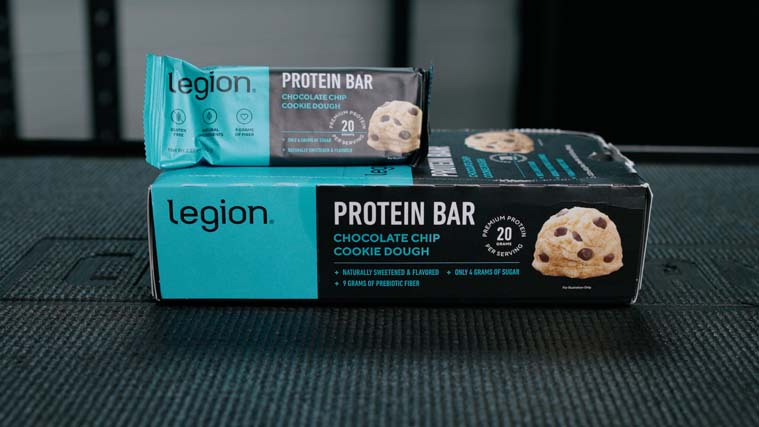
Look for credentials or claims on the label that speak to whether they’re appropriate for your diet – and when in doubt, read through the ingredient list to ensure there aren’t any ingredients you’re trying to limit or avoid.
Low-Sugar Protein Bars FAQs
Are low-sugar protein bars healthy?
Yes, low-sugar protein bars can be healthy since they contain protein to help you build muscle and recover from workouts and are low in added sugar, which is tied to many chronic diseases. However, check the ingredient list for additives and low-grade fillers that don’t contribute to the product’s nutritional value. You can also look for third-party testing on the label to ensure the product’s quality, effectiveness, and safety.
What is the best low-sugar protein bar?
What is considered the best low-sugar protein bar is highly subjective, as it depends on personal preferences and dietary needs. Some popular options include Quest Bars, RXBar, Promix, Aloha Bars, Pure Protein, No Cow, and Legion. We think Legion Protein Bars are among the best low-sugar protein bars. They boast an excellent protein source and macronutrient balance, a clean ingredient list, and fiber to help you stay full.
How much do low-sugar protein bars cost?
Low-sugar protein bars can cost $1.11 to $3.33 per bar, depending on your needs and preferences. In our review, we’ve listed our budget pick, but if you prefer a protein bar with different macros or one that meets particular dietary needs, you may need to choose a more premium option.
Are low-sugar protein bars good for athletes with diabetes?
Low-sugar protein bars can undoubtedly support the nutrition needs of people with diabetes since they help manage blood sugar levels while providing extra protein. They make great snacks between meals to keep glucose levels steady without falling too low (hypoglycemia) but without eating something that will spike glucose levels too high. However, if you plan to replace a meal with a low-sugar protein bar or on insulin injections, speak with your endocrinologist before starting supplementation.
References
- Harvard Health Publishing. (2023). The bitter truth about added sugar. Available at https://www.health.harvard.edu/staying-healthy/the-bitter-truth-about-added-sugar
- Kerksick, C. M., Wilborn, C. D., Roberts, M.D. (2018). ISSN exercise & sports nutrition review update: research & recommendations. Journal of the International Society of Sports Nutrition, 15(38).
- Mäkinen K. K. (2016). Gastrointestinal Disturbances Associated with the Consumption of Sugar Alcohols with Special Consideration of Xylitol: Scientific Review and Instructions for Dentists and Other Health-Care Professionals. International Journal of Dentistry, 2016, 5967907.
- Foegeding, E. A., & Luck, P. J. (2002). Milk Proteins: Whey Protein Products. Encyclopedia of Dairy Sciences, 1957-1960.
- Barber, T. M., Kabisch, S., Pfeiffer, A. F. H., & Weickert, M. O. (2020). The Health Benefits of Dietary Fibre. Nutrients, 12(10), 3209.
- U.S. Department of Agriculture and U.S. Department of Health and Human Services. Dietary Guidelines for Americans, 2020-2025. 9th Edition.
- Wang, T., Masedunskas, A., Willett, W. C., & Fontana, L. (2023). Vegetarian and vegan diets: benefits and drawbacks. European heart journal, 44(36), 3423–3439.
- Wieser, H., Segura, V., Ruiz-Carnicer, Á., Sousa, C., & Comino, I. (2021). Food Safety and Cross-Contamination of Gluten-Free Products: A Narrative Review. Nutrients, 13(7), 2244.
- Glenn, A. J., Aune, D., Freisling, H., Mohammadifard, N., Kendall, C. W. C., Salas-Salvadó, J., Jenkins, D. J. A., Hu, F. B., & Sievenpiper, J. L. (2023). Nuts and Cardiovascular Disease Outcomes: A Review of the Evidence and Future Directions. Nutrients, 15(4), 911.
- Khalili, L., A-Elgadir, T. M. E., Mallick, A. K., El Enshasy, H. A., & Sayyed, R. Z. (2022). Nuts as a Part of Dietary Strategy to Improve Metabolic Biomarkers: A Narrative Review. Frontiers in nutrition, 9, 881843.
- LendingTree. (2021). Fitness, Nutrition Spending Driving About 40% of Millennials and Gen Z into Debt. Available at https://www.lendingtree.com/credit-cards/study/fitness-nutrition-spending-debt/
- Storhaug, C. L., Fosse, S. K., & Fadnes, L. T. (2017). Country, regional, and global estimates for lactose malabsorption in adults: a systematic review and meta-analysis. The lancet. Gastroenterology & hepatology, 2(10), 738–746.
- Centers for Disease Control and Prevention. (2024). About Insulin Resistance and Type 2 Diabetes. Available at https://www.cdc.gov/diabetes/about/insulin-resistance-type-2-diabetes.html
- Silverii, G. A., Cosentino, C., Santagiuliana, F., Rotella, F., Benvenuti, F., Mannucci, E., & Cresci, B. (2022). Effectiveness of low-carbohydrate diets for long-term weight loss in obese individuals: A meta-analysis of randomized controlled trials. Diabetes, obesity & metabolism, 24(8), 1458–1468.
- Nunes, E. A., Colenso-Semple, L., McKellar, S. R., Yau, T., Ali, M. U., Fitzpatrick-Lewis, D., Sherifali, D., Gaudichon, C., Tomé, D., Atherton, P. J., Robles, M. C., Naranjo-Modad, S., Braun, M., Landi, F., & Phillips, S. M. (2022). Systematic review and meta-analysis of protein intake to support muscle mass and function in healthy adults. Journal of Cachexia, Sarcopenia and Muscle, 13(2), 795–810.
